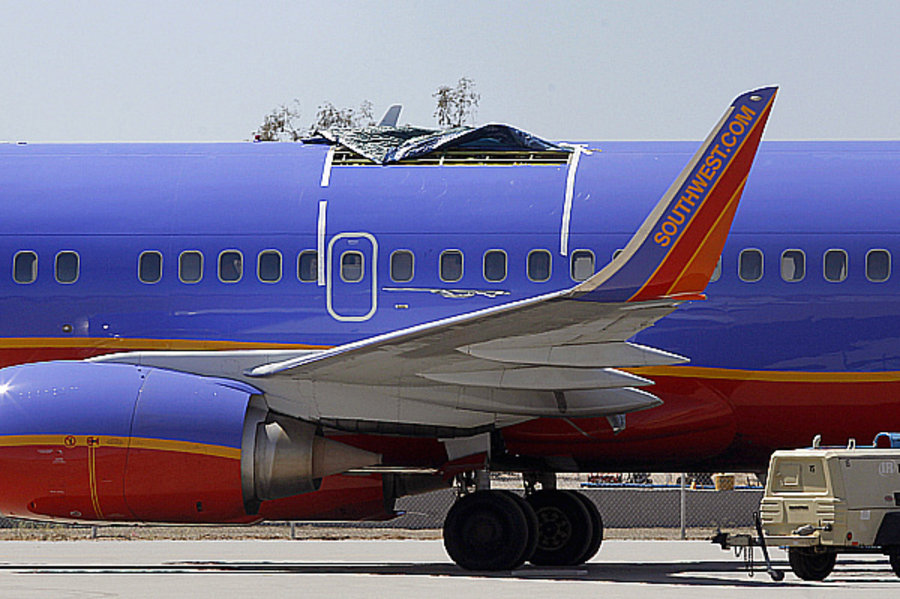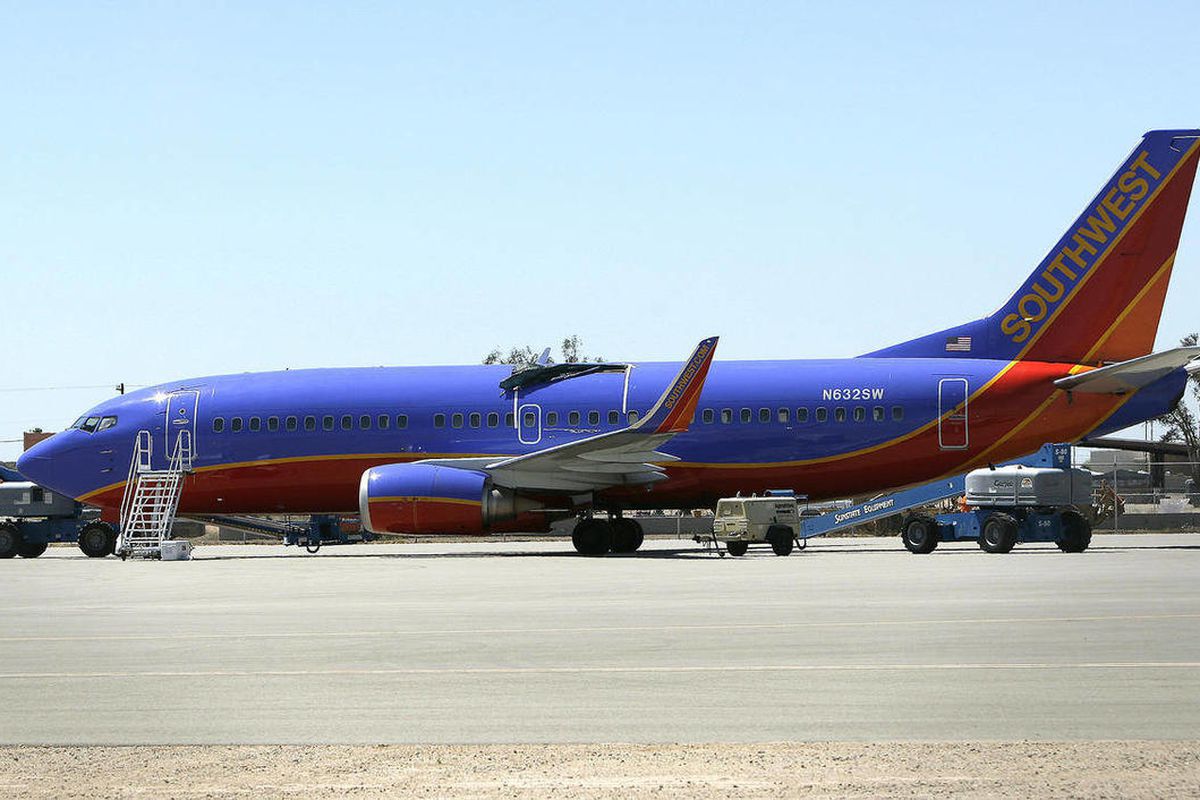


The Incident :
On 1st of April 2011, Southwest Airlines Flight-812 was climbing through FL344 to reach FL360 over Arizona (US), after a smooth take off. Suddenly a loud bang was heard , Chaos started creeping in !
After few seconds, the captain observed cabin pressurization decreasing rapidly, he announced oxygen masks on. The cockpit declared an emergency to air traffic control, and received clearance for emergency descent.

The Recovery :
Flight crew performed a rapid descent to 11,000 ft to normalize 'cabin altitude' and prevent hypoxiac. By this time, there were reports from passenger cabin of a "two-foot hole" and couple of injuiries.
Cockpit requested a further descent to 9,000 feet and vectors to the nearest airport suitable for B737 aircraft. Then the aircraft landed at Yuma International Airport without any further incident.
What had happened on that day ?
Inspection of the aircraft at Yuma Airport revealed that, a crown section of fuselage (lap joint) skin had dis-oriented and peeled open, causing the rapid decompression.
Length of the opening was approx. 60 inches and width around 8 inches.

The Incident Aircraft :
The NTSB Investigation :
NTSB Investing team revealed that, the 5 feet long tear along the longitudinal lap joint was due to the pre-existing fatigue. A previous repair on the same place in the year 2010 (march) due to the crack findings was suspected as contributing factor for this skin panel tear. Further cause of the incident was attributed to a manufacturing error at OEM's facility.

After effects :
FAA came in to action on April 5th, 2011, issued an emergency AD (airworthiness directive) requiring operators of B737- 300 /-400 and - 500 aircrafts to increase the frequency of inspections of lap joints on high flight cycle aircrafts.
Fatality and Injuiries :
No fatality out of the incident as the aircraft landed safely . Only One flight attendant and an off-duty airline employee received minor injuries, medically treated subsequently.
Picture Source : NTSB/AAB-13/02
